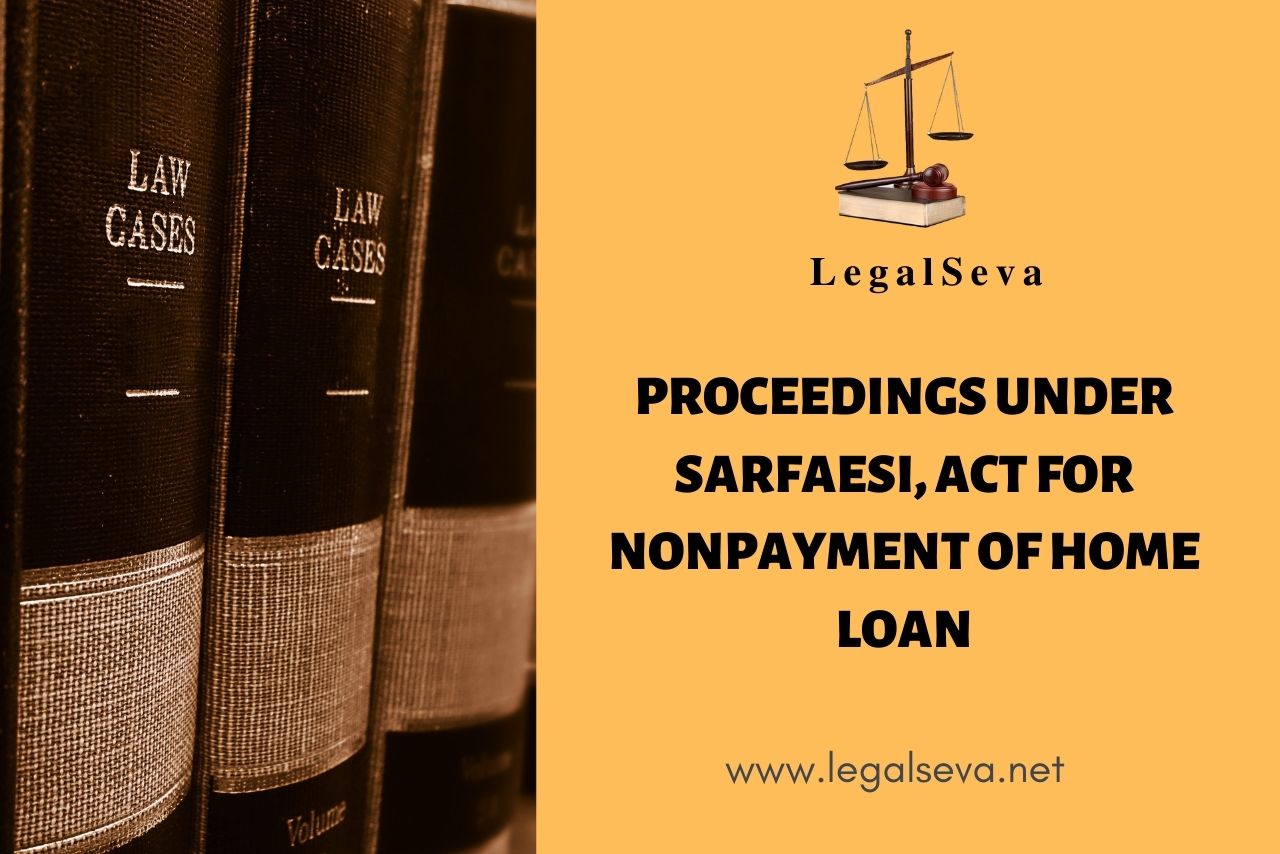In this post we will discuss about a case wherein the the petitioner had obtained a house loan of Rs. 37 lakhs. Subsequently, on account of default in payment, a notice under Section 13(2)of the SARFAESI Act was issued demanding from the petitioner the defaulted amount.
Sabu Varghese George vs Authorized Officer on 16 March 2020
PETITIONER/PETITIONER:
SABU VARGHESE GEORGE
RESPONDENTS/RESPONDENTS:
1 AUTHORIZED OFFICER,
HOUSING DEVELOPMENT FINANCE CORPORATION LTD. BANK
2 A.S.GOVIND
In the present case, the petitioner had obtained a house loan of Rs. 37 lakhs on 21.03.2011 from the Housing Development Finance Corporation Ltd. in exchange for the areas of the property comprising the Uloor Village, Trivandrum Taluk as security. Subsequently, on account of default in payment, a notice, dated 18.08.2014, under Section 13(2)of the SARFAESI Act was issued demanding from the petitioner a sum of Rs. 37,44,343 as due on 31.07.2014
The petitioner then approached the court and sought some breathing time and by the judgment dated 28.10.2014, the applicant was afforded the opportunity to pay the overdue amount of Rs.9,61,291 in five monthly instalments on the condition that in case of a default, the bank would have the power to continue with proceedings under the SARFAESI Act. The petitioner failed with the direction of the court and proceedings under Section 14 of the Act were instituted. On 23.02.2015, The Authorised Officer took possession of the property and published the possession notice in the newspaper on 26.02.2015. On 17.08.2015, respondent no. 3 acquired interest in the property by virtue of the sale certificate dated 08.11.2015 and execution of registered sale deed dated 29.01.2016. Respondent no. 3 was already in possession of the said property on 08.11.2015.
Under the aforementioned circumstance, the sale was challenged before the Debts Recovery Appellate Tribunal on various grounds including non-serving of sale notice as the petitioner was in Saudi Arabia. During the pendency of the application, the petitioner on 30.11.2015 made an attempt to recover the property by depositing a sum of Rs. 15 lakhs by 01.10.2015 in a no lien account opened with the same bank and to deposit the remaining sum of the debt within a month in the same account. Although the petitioner deposited Rs. 15 lakhs, he failed to remit the balance secured debt. An application to permit the pay the balance amount in five monthly instalments was also rejected and under the above circumstances, the application was dismissed by an order dated 07.11.2018.
ALSO READ- DEMAND NOTICE UNDER SARFAESI ACT
Aggrieved by the order of the DRAT, imposing a condition to deposit Rs. 22 lakhs an appeal was preferred before the Hon’ble Court. The Court by an order dated 14.06.2019 set aside the order of the DRAT and directed it to reconsider the quantum of the pre-deposit and also clarify that the amount deposited under the order of the DRAT earlier is to be treated as owned by the petitioner, which may or may not be adjusted to the pre-deposit. The DRAT by an order dated 15.10.2019 reiterated the previous order by asking the petitioner to deposit 22 lakhs i.e. 50% of the sale amount for the entertainment of the appeal. Against the order of the DRT dated 15.10.2019, the petitioner preferred an appeal before the Hon’ble Kerala High Court.
The counsel for the petitioner submitted that during the pendency of the Securitisation Application a fixed deposit had been deposited with the HDFC Bank after the execution of the sale deed and that this amount could be adjusted for the entertainment of the appeal without insistence upon a fresh deposit. In order to fortify his arguments the counsel placed reliance on the judgements of the Hon’ble Delhi High Court in Poonam Manshani v. J.K.Bank Ltd. and another[1] and on the judgements of the Hon’ble Supreme Court in Narayan Chandra Ghosh v. UCO Bank and others[2] wherein it was held that it is the discretion of the DRT as per the proviso of Section 18(2) to deposit 25% for hearing the appeal instead of 50%.
On the contrary, the counsel for the bank submitted that the petition is not maintainable as the order dated 15.10.2019 is based upon the concession and the only remedy was to seek a recall and nothing else. The judgement of the court did not direct the bank to adjust the balance amount in the fixed deposit for the purpose of hearing of the appeal before the DRT. Rather a recourse was awarded to the petitioner to withdraw the fixed deposit and make arrangements of the deposit.
ALSO READ- AFT CAT NCLT DRT HIGH COURT CHANDIGARH JURISDICTION
Having heard both the parties the Hon’ble Court came to the conclusion that the petitioner has adopted all possible tactics installing the legal preclusion of the proceedings, especially when the registered sale deed has already been expected in January of 2016 and moreover respondent no. 3 had already taken possession of the said property. The petitioner reported the amount on his own volition and did not adhere to the directions in the earlier round of litigation when against the notice under Section 13(2), this court had granted the liberty to pay the overdue amount and the same was duplicated during the pendency of the Securitisation Application as well. The Court further held out that at no point did it grant any concession of adjustments of the fixed deposit towards the pre-deposit.
The Hon’ble Kerala High Court directed that in case the petitioner deposits the amount of. 50% of the sale amount within four weeks, the DRT shall hear the appeal and adjudicate the dispute on merits and in accordance with the law. The Court dismissed the petition and upheld the order passed by the DRT dated 15.10.2019.
ALSO READ-PROCEDURE UNDER SARFAESI ACT, 2002 IN DRT CHANDIGARH
This post was written by Aniket Rai
For case specific advice, please contact best/top/ DRT Advocates Lawyer in Chandigarh Panchkula Mohali Kharar Zirakpur Derabassi etc.
More on 99888-17966.
[1] W.P.(C) No.13042/2009
[2] Civil Appeal No. 2681/2011

